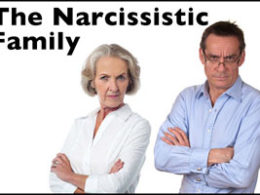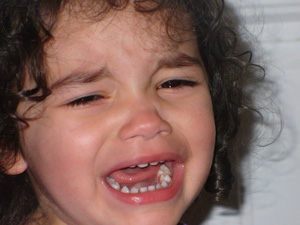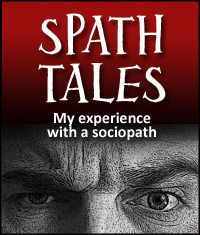UPDATED FOR 2025. Editor's note: The following email was sent by the Lovefraud reader who posts as "OpalRose" about her sociopathic mother.I'm not a good writer, but I've learned so much the past 3 years from Love Fraud that I decided to write about my “Long Night's Journey into Day” about emerging from childhood with a sociopathic mother.My first experience of something amiss that stuck with me was probably pre-school when she had a full-blown temper tantrum that I brought her too many envelopes. She had asked for “a few envelopes” and I had brought 7 — she even counted them out and screamed that I should know that “a few” means 3. So much for my ability to read minds. She insisted that “if …
Sociopaths make terrible parents, not truly concerned about your wellbeing. These articles are for, and by, people who lived it. They may comfort you.
10 examples of the scapegoat’s isolation in the narcissistic family
By Joanie Bentz, B.S., M.Ed., LBSA toxic family operates like a cult. The head narcissists (either one parent or both) make certain that they are able to rally their troops around them, which happen to be their children. Almost always, there is one child who is never assimilated into the cult. This child is the scapegoat. From early years, this child is observed as being highly sensitive, creative, empathetic and outspoken. Because the scapegoat is not like them, the narcissists must villainize this family member to elevate themselves and feel superior. It becomes an addiction.Hence, the other children are trained on behalf of the parents to mistreat and bully the scapegoat, which …
10 examples of the scapegoat’s isolation in the narcissistic familyRead More
LETTERS TO LOVEFRAUD: Child of an undiagnosed sociopath
Editor's note: A Lovefraud reader, we'll call him Allen, tells his story of being the child of an undiagnosed sociopath. I know the story starts way before my time with my dad, so I can only tell you what I saw growing up and what I now see in hindsight. I think the biggest thing that I see in him is that he takes no personal responsibility for anything. Somewhere in his late 20's he “found God” — whatever that really means to him — and it was right around the time that my mom finally left him because of physical abuse that he denies to this day. He says that he never laid a hand on her and then when I remind him that I was there that day and saw everything he still denies it. He claims …
LETTERS TO LOVEFRAUD: Child of an undiagnosed sociopathRead More
How psychopathic parents create complex trauma in their children
By Dr. Kathy Ahern An earthquake strikes in the middle of the night. A four-year-old child is trapped in a demolished house. She is left without food or water, help or support for three terrifying days. In a different city another child the same age is neglected by her self-absorbed parents. They ignore her cries of hunger and fear for three days. Years later, the earthquake victim suffers no ill effects from her experience. The child who was physically and emotionally abandoned grows into an adult suffering from complex PTSD. The physical and emotional traumas were identical. So why the difference? Betrayal. The neglected child was dependent on her parents. She needed them. She …
How psychopathic parents create complex trauma in their childrenRead More
Understanding why the sociopath is just like your parent
Most people who call me for personal consultations want to talk about an abusive romantic partner. They want to know if their partner is a sociopath, and usually, based on their story of lies, manipulation, cheating, stonewalling, gaslighting and sometimes violence, the answer is yes. Then, as we talk about how they were vulnerable to this person, they say that the sociopath is just like their parent. For example, here's a letter that I received from a Lovefraud reader: I was involved with a narcissist in 2013 and after a year of being with a complete nut case went no contact. (Can write a short story about it.) It's taken a few years but free now in my mind. My father is a narcissist …
Understanding why the sociopath is just like your parentRead More
The generational abuse is finished
By Joanie Bentz, B.S., M.Ed., LBS This is the last article in a series about my work with a client, “Mary,” in which I used the empty chair technique. This therapy technique helped her explore generational abuse and express long-suppressed feelings to her father, who was deceased. You can read the previous articles here: Empty chair technique to resolve issues with deceased father Coming to terms with an abusive mother and an indifferent father Her father felt sorry for her sociopathic ex During Mary’s processing of her emotions through this empty chair technique, she realized that she had nothing to do with the origination of her family’s chaotic problems. Mary learned that while she wa …
Dealing with dying Cluster B parents
Editor’s note: The following article was written by the Lovefraud reader, “Matt,” a long-time member of the Lovefraud community. By Matt It has been many years since I last posted on Lovefraud. When I first joined Lovefraud in November 2008, I was among the walking wounded having just pried my sociopath boyfriend out of my life. This site was my godsend. Among the many topics covered, although it wasn’t on my radar at the time, was dealing with Cluster B parents as they came to the end of their lives. Having buried both of my parents within the last 5 years, I’d like to share my experiences dealing with such parents. My parents My parents were two martinets who treated their children as …
Her father felt sorry for her sociopathic ex
By Joanie Bentz, B.S., M.Ed., LBS In my last two articles, I described how I’m using the “empty chair technique” to help a client, Mary, get closure about her disordered, but deceased, father. She wanted to know why her father felt sorry for her sociopathic ex. Read the previous articles: Empty chair technique to resolve issues with deceased father Coming to terms with an abusive mother and an indifferent father Here we have a continuation of the empty chair technique with Mary and her father. Mary finished the last session discussing how she was infantilized and abused by her mother. In this third session, Mary confronts her father about his relationship with her ex-husband. Mary’s ex …
Coming to terms with an abusive mother and an indifferent father
By Joanie Bentz, B.S., M.Ed., LBS In my last article, I described how I’m using the “empty chair technique” to help a client, Mary, get closure about her disordered, but deceased, father. Here we have a continuation of the empty chair technique with Mary and her father. Mary finished the last session telling her father that she is finished trying to reason with unreasonable people. In this second session, Mary picks up where she left off. She wants to discuss her abusive mother. Mary’s father makes a choice too Joanie: Mary, you told your father you are done reasoning with unreasonable people. You told him you made a choice. Did he agree with your choice? Mary: No, by his silence, he di …
Coming to terms with an abusive mother and an indifferent fatherRead More
Childhood trauma inflicted through narcissistic families continues into adulthood
by Joanie Bentz, B.S., M.Ed., LBS "These pains you feel are messengers. Listen to them." —Rumi Let us say in the present moment you are a 45-year-old man or woman who experienced childhood trauma. You may have children you are raising and an array of responsibilities. Perhaps you have a university education or have been on a quest for self-improvement. On a less positive note, let us say that you are struggling emotionally. You know that there is something wrong with your spouse, but you doubt your gut instincts. You believe you are too hard on your spouse and are being overly judgmental. However, you understand that the spouse mistreats you often, but you never connected the word a …
Childhood trauma inflicted through narcissistic families continues into adulthoodRead More






